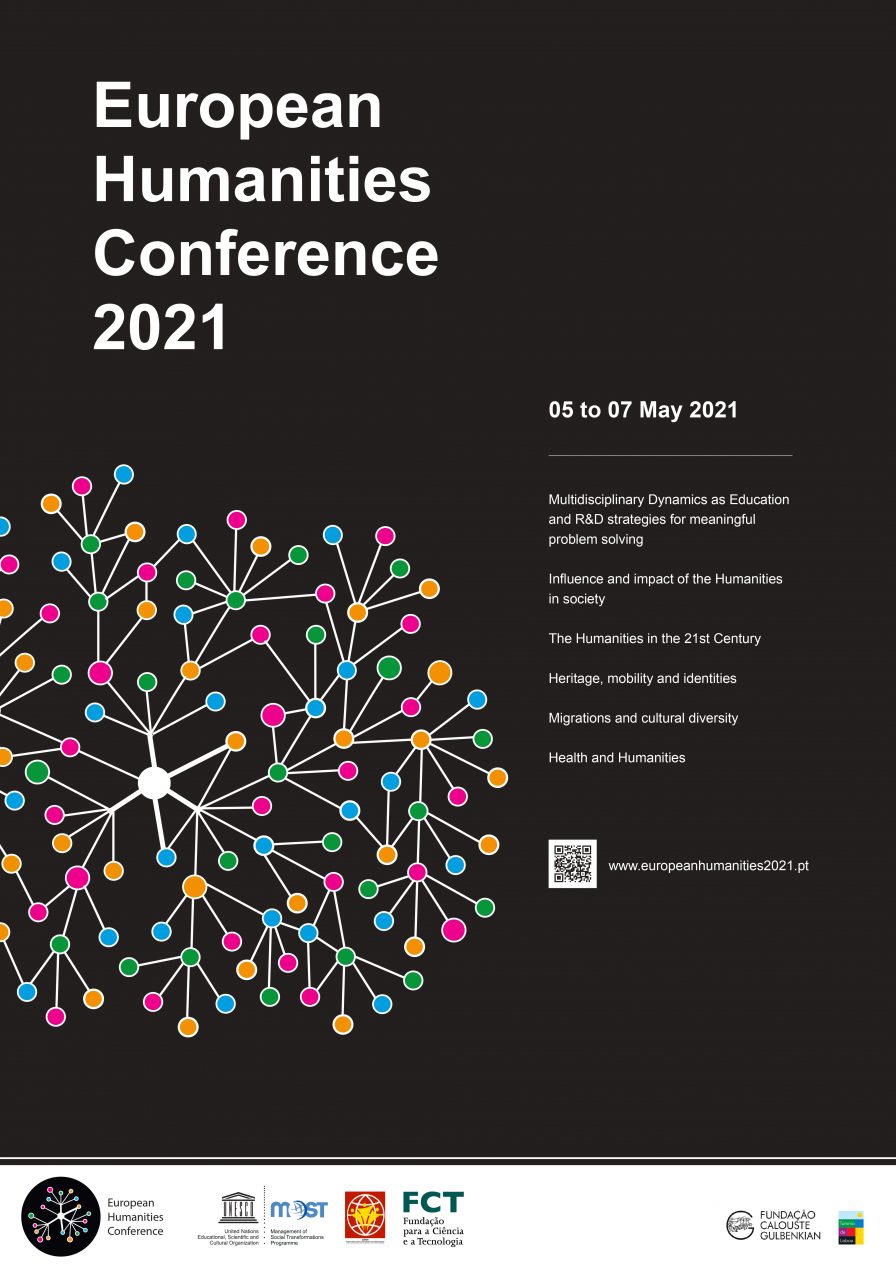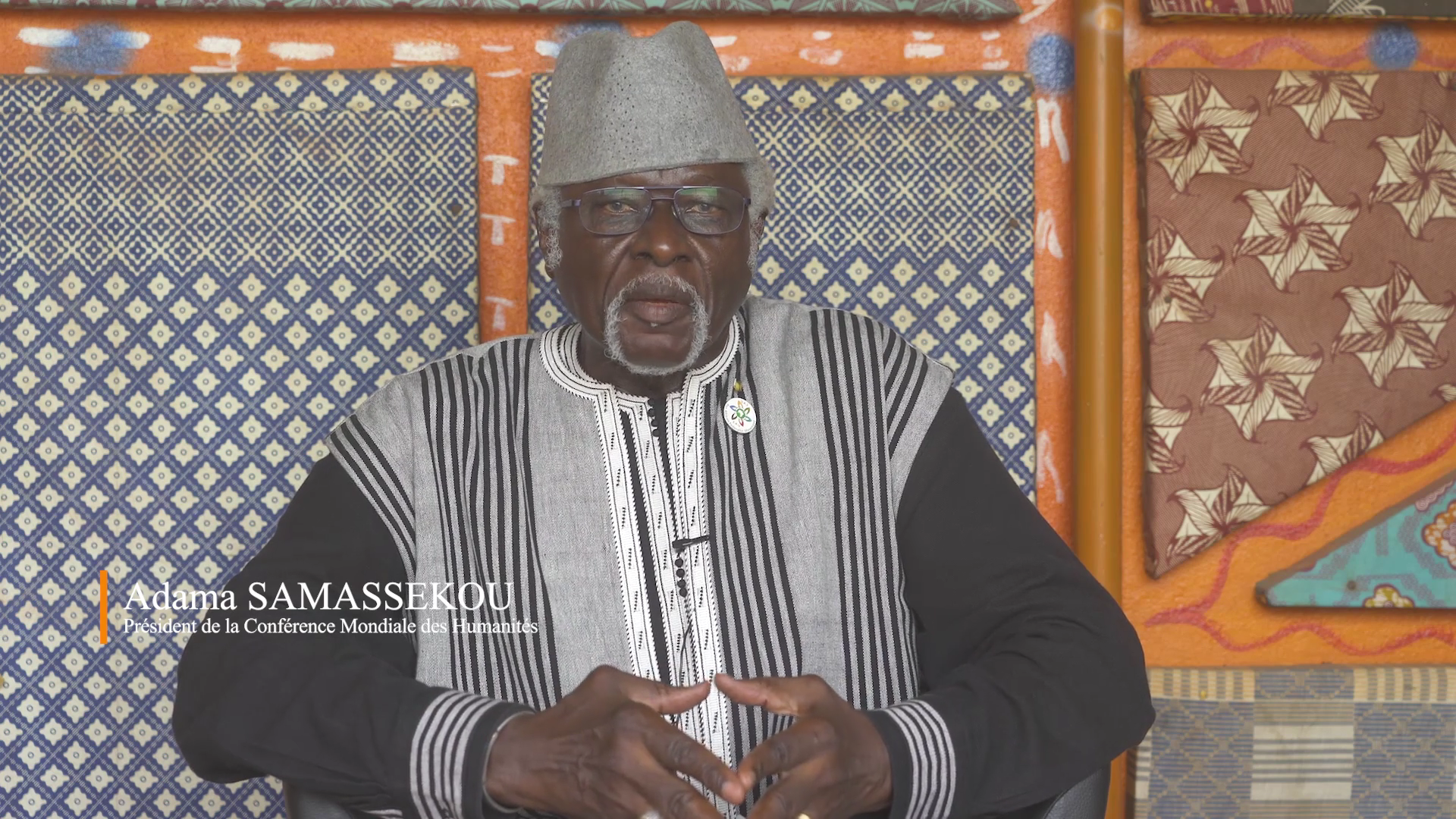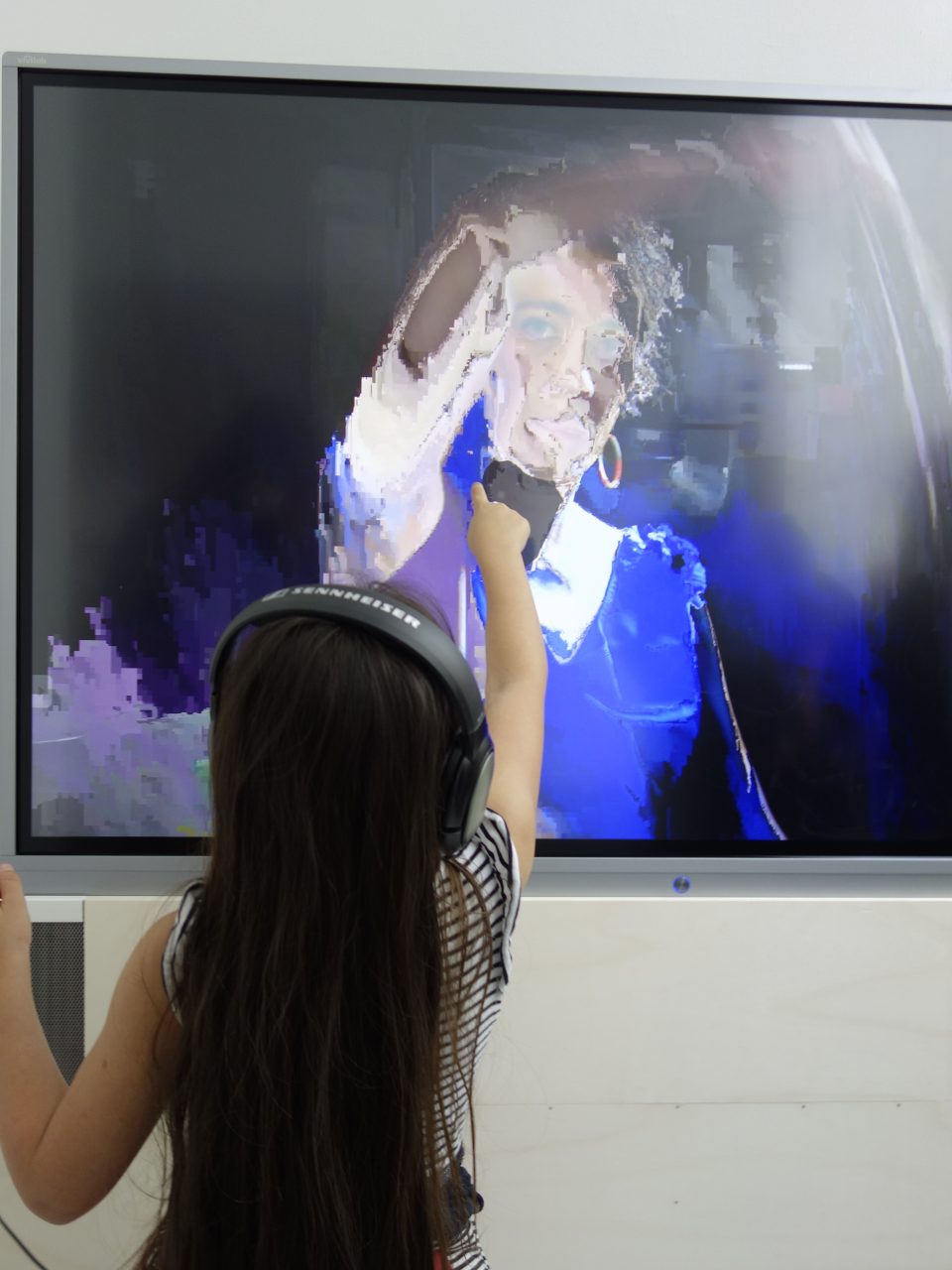THE EUROPEAN HUMANITIES CONFERENCE
The European Humanities Conference was held the 5-7 May 2021, gathering 112 speakers (59 women and 53 men), from 23 European countries (but, also, North and South America, Africa, Asia and Oceania). Out of these, 20% were historians, 20% from literary studies, 14% anthropologists and archaeologists, 14% from other humanities and 36% from other sciences and the arts. Over 800 participants also interacted with the speakers, during the open debates.

The Conference allowed to cover a range of important research themes, both on strategic approaches (like multidisciplinary research or on traditional and new humanities) and contemporary concerns (like migrations, health or technology), presented projects (like Bridges and the Global History of Humankind). Younger researcher pursued an autonomous activity, while participating in the conference as a whole, and have presented their own reflections.
While engaging all the members of CIPSH, 80 of the speakers were connected to various other thematic or regional networks of universities and scholars, together establishing a basis for a robust convergence for future steps to follow. This convergence is expressed in the Lisbon Declaration on Humanities, Open Research and Innovation, prepared by CIPSH, UNESCO, FCT and the Portuguese Ministry for Research, Technology and Higher Education, which is open for further signature by departments, research centers, higher education institutions, governments and beyond, for a focused set of pragmatic and transformative proposals. The declaration, besides standing for the open and collaborative research and freedom of researchers and students, in Europe and beyond, further proposes a major transformative initiative: to “ensure that, from primary through all levels of education, including doctorate levels, integrate, transversally, course units on humanities and sciences interaction, strengthening the value of universal knowledge for addressing societal challenges.” This declaration has already been signed by a large number of Foundations, Universities, Academies and Research Centres, in Europe and many other countries, and CIPSH expects that it will contribute to overcome the current illogic and erroneous divide that is still conveyed through the education system.
The declaration can be read here and endorsements may be sent to here. The Conference also approved several other recommendations in two documents: the final outcome document and the youth forum report, both accessible here.

CIPSH INTERNATIONAL ACADEMY ON CHINESE CULTURES AND GLOBAL HUMANITIES SEMINAR

The Union Académique Internationale (UAI) has undertaken to organize two seminars for the CIPSH International Academy on Chinese Cultures and Global Humanities, with the support of the Chiang Ching-kuo Foundation for International Scholarly Exchange. These seminars were from the beginning conceived as gatherings with the participants physically attending. But the Covid-19 pandemic made a physical seminar impossible and so we organized the first seminar as a webinar. The theme of this webinar, which was held on 11–12 November 2020 and organised in cooperation with the Stockholm China Center, was “Chinese and European Resources for a Global Ethic”. Fourteen papers were presented at the webinar. Eleven of these plus two additional papers are now being edited for publication. The intention was that they should be published before the European Humanities Conference in Portugal 5–7 May 2021. Unfortunately, this has not been possible. As so many other projects, this publication has been delayed by the pandemic. But it is well under way, and we are looking forward to present it to the participants in the second seminar to be held later this year.
During the past year the Covid-19 pandemic has affected human lives all over the globe. How to deal with the pandemic, for example the production and distributions of vaccines, raises serious ethical questions which belong in the realm of global ethics. The second seminar will discuss the pandemic and global ethics. During the past few years the global effects of climate change have caused more widespread attention and concern than ever before. It is also quite clear that climate change and the environmental crisis increase the likelihood of pandemics. This second seminar will also deal with the environmental crisis within the global theme “Global Challenges and Global Ethics: the Covid-19 Pandemic and the Environmental Crisis”.
SUSTAINABILITY

CIPSH has actively participated and endorsed two new tools that focus on the contribution of the Humanities for rethinking and improving sustainability approaches.
On the 31st of March, UNESCO approved the establishment of a new programme coalition, named BRIDGES. This is aimed at implementing the strategy defined in the UNESCO Sustainability Science Guidelines, approved in 2017 and which were also prepared with the collaboration of CIPSH.
The new coalition builds on the principles then approved:
1. Sustainability Science responds specifically to the interdependent, complex and mutually reinforcing character of natural, social and cultural sustainability challenges that are ongoing globally and lo-cally. Sustainable development, as expressed in the United Nations Agenda 2030, is exactly about the interplay of such challenges.
2. Sustainability Science aims at mobilizing, generating, disseminating and implementing knowledge necessary to define and achieve sustainability as a response to such challenges in the concrete con-texts of different geographical and temporal scales. Such knowledge includes new technologies and innovative processes.
3. In addition to generating knowledge, Sustainability Science focuses on solving problems, under-standing dilemmas and conflicts of goals and interests, with a view to move towards more inte-grated and coherent policy agendas, policy options and foresight scenarios that take into account both short-term and long-term needs.
4. Sustainability Science is crosscutting science by nature, having as a major goal to seek complemen-tary cooperation between natural and social sciences, the humanities, the arts and, in particular, to ensure the participation of diverse non-academic stakeholders, through a collaborative process of co-design, co-production and co-management.
5. Sustainability Science is based on both academic freedom and academic responsibility towards societal needs.
6. Sustainability Science requires important new capacities of individual scientists for integrated critical analysis and foresight; the ability to cope with systems thinking, changing environments, risks and insecurity; and the capacity to recognize and address diverse values as well as conflicts of goals and interests, to empathize and work responsibly and collectively in diverse partnerships. Such capacities need to be strengthened through all forms of education.
BRIDGES further adopted five specific principles:
1. The BRIDGES Coalition is humanities-centered but not limited to the humanities. We value contextualized and diverse approaches to sustainability, and we acknowledge that persistent challenges are often complex, yielding sometimes contradictory responses. We encourage robust debate in efforts to meet these challenges.
2. The BRIDGES partners understand the Earth not solely as a planetary system, nor as a reservoir of resources, but as a web of meanings and interactions that is inherently multilayered and pluralistic.
3. The BRIDGES Coalition is committed to a critical understanding of sustainability that emphasizes the diversity of its subjects, objects and timelines.
4. BRIDGES will work to establish a world of new relationships, based on convergent understandings and co-design among the co-inhabitants of the Earth.
5. The BRIDGES partners are committed to an ethical approach to resource mobilization and use.
CIPSH also collaborated in the preparation of the Jena Declaration on Humanities and Social Sciences for Sustainability, which stresses that “the design and implementation of culturally and regionally differentiated pathways towards global sustainability calls for a stronger engagement of the humanities, social sciences, and the arts.”
CULTURAL PRODUCTION AND COMMUNICATION IN THE DIGITAL AGE

A two-year collaborative research project on “Cultural Production and Communication in the Digital Age” between CIPSH and University of California Humanities Research Institute (UCHRI) and Hangseng University of Hong Kong (HSUHK) formally began in January of 2021. Led by Hsiung Ping-chen, David Goldberg (UCHRI), Desmond Hui (HSUHK) and the Tencent Center for Internet and Society, preparations of study had commenced since August 2020, sponsored by Tencent. It was decided that the scholarly focus will be on the “Internet Literature” in China theorized historically and studied in comparative perspective.
In addition to collecting primary source materials and consulting secondary studies, regular field interviews were designed and carried out in mandarin Chinese by the Department of Arts and Design at HSUHK) facilitated by the team at the Tencent Center for Internet and Society (Derek Yue, Alice Liu, Henry Lee). Bilingual records of two-hour long bi/monthly interviews with the editor, manager, author were produced after the interview for archival purposes, for a first hand profiling of the Yuewen Company on the internal look of the Chinese internet literature, to be considered and analysed with business records and media reports.
One scholarly paper, entitled “Creating a Reading Habitat? Cultural Roots of the Chinese Internet Literature” by Hsiung Ping-chen had been presented at the conference on “Children, Education and Technology” at Hangzhou Normal University on 22-23 April 2021. It reveals for the first time the close reading habit between traditional Chinese popular literature and drama, in the subgenres of romances, martial art novels, in a sequential form, released later by magazines and newspapers, prepared for the ground for internet literature to go viral rapidly in the last decades.
International Council for Philosophy and Human Sciences: http://cipsh.net/
International Council for Philosophy and Human Sciences: http://cipsh.net/
